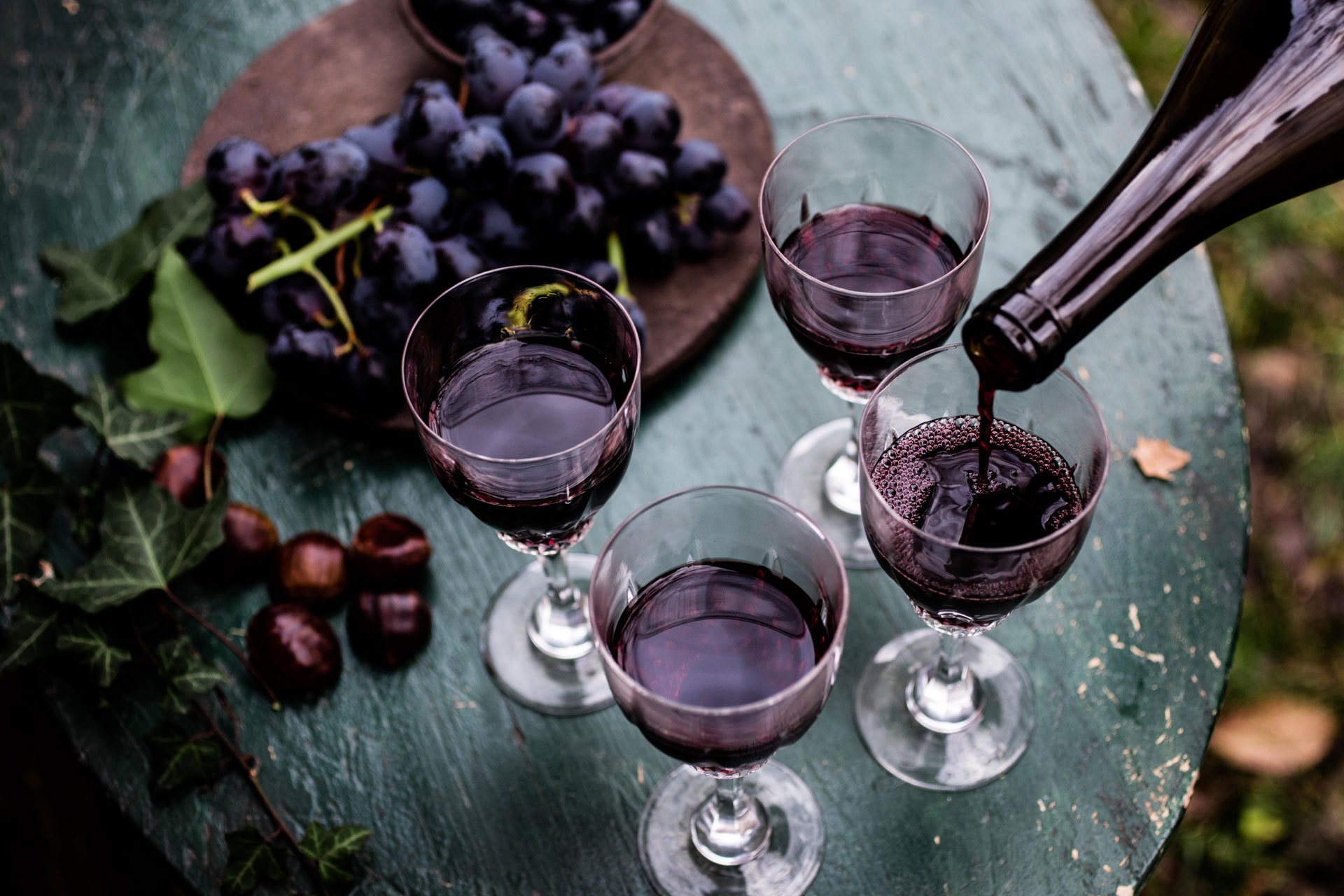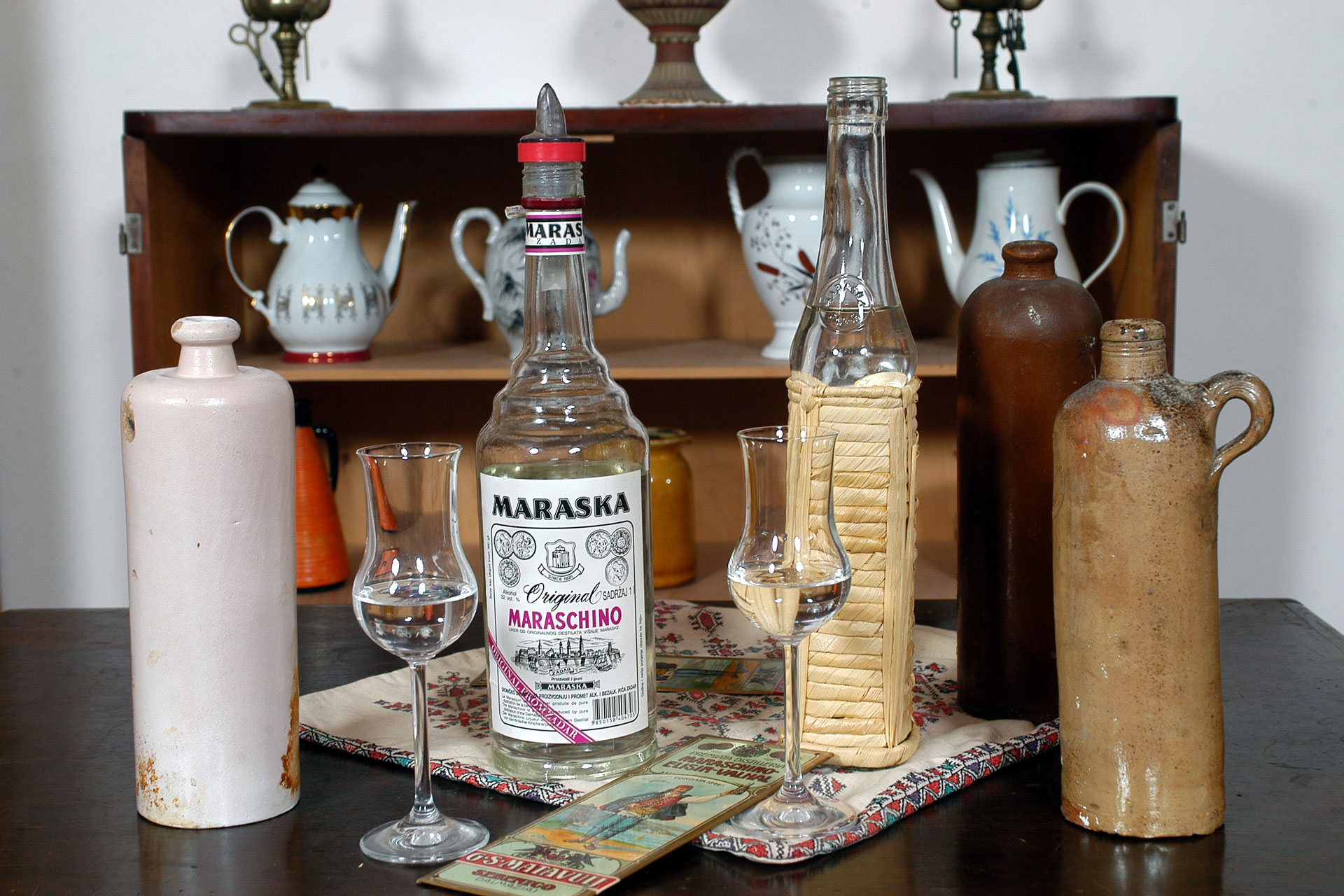
Dalmatia's favourite (traditional) drinks
Dalmatia's favourite (traditional) drinks
Dalmatian cuisine is famous for its beneficial effect on everyone who follows its main ideas - olive oil, locally grown herbs, fresh seasonal vegetables and fish, paired with just the right amount of wine.
There is even a phrase in Croatian language, ‘dobra kapljica’ (translated as ‘a few drops of quality (alcoholic) drink’) which basically refers to the idea of selecting the right drinks and consume them with moderation so as to have a complete and well-balanced meal. So, here are a few Dalmatian drinks, which go well with traditional cuisine of the region.
Wine
Even though Dalmatian wines are internationally far less renowned than, for example, the French ones, the excellent Mediterranean climate and soil give amazing results in wine production in Dalmatia. And have done so for centuries. From vineyards on Pag island, Zadar hinterland, Dalmatian islands and Pelješac peninsula, red wines such as Plavac, Dingač or Babić will add a great touch to any traditional meal. (A note - don’t be surprised to see the locals add some water to their wine. It’s called ‘bevanda’ and it’s a generally liked drink). Those who prefer white wines should try a good glass of Pošip.

Image author: Maja Danica Pečanić, Image source: CNTB
Prošek
The name ‘prošek’ sounds quite like Italian prosecco, but they are both rather different when it comes to the grape types, origin, method of production and, most importantly, the taste. In fact, Dalmatian ‘prošek’ is a dessert wine which is produced in a very specific way from overripe grapes that are partially dried. The final result is an alcoholic drink with a somewhat greater percentage of alcohol when compared to wine, which tends to be sweet, but it does not go well only with desserts, as its name suggests. It’s the type of a drink that used to be found in most households in the past, and many of them were home-made.
Rakija
It’s practically impossible to find a stronger drink than ‘rakija’, an equivalent to a brandy. (Another note- a home-made ‘rakija’ can have twice as much alcohol content as the one produced in a factory). Since its basic ingredient is some kind of fruit, they usually have a reference to that specific fruit in their name. So, they might be called ‘šljivovica’ (šljiva ‘plum’), ‘travarica’ (trave ‘herbs’), ‘orahovica’ (orah ‘walnut’), ‘medica’ (med ‘honey’), to name just a few. Also used as a popular traditional remedy for all sorts of illnesses, ‘rakija’ is generally taken as an appetizer and should be consumed moderately.
Maraschino
Typical for Zadar region where it’s been produced for a couple of centuries, Maraschino is a liqueur produced from a Marasca cherry. Once a favourite on the courts all over Europe, Maraschino is an authentic Dalmatian product. People can drink it on its own, or as a part of delicious cocktails. Also, those who don’t drink alcohol will be happy to hear that there are a number of available non-alcoholic drinks made of Marasca cherry that are produced by the same company.

Image Author: Stipe Surać
Cheers!
The variety of traditional Dalmatian drinks allow every visitor to find some to their taste. The point is to try authentic cuisine completed with appropriate drink and to take time to enjoy it with moderation. Relaxed and simple, just as life in Dalmatia is.







